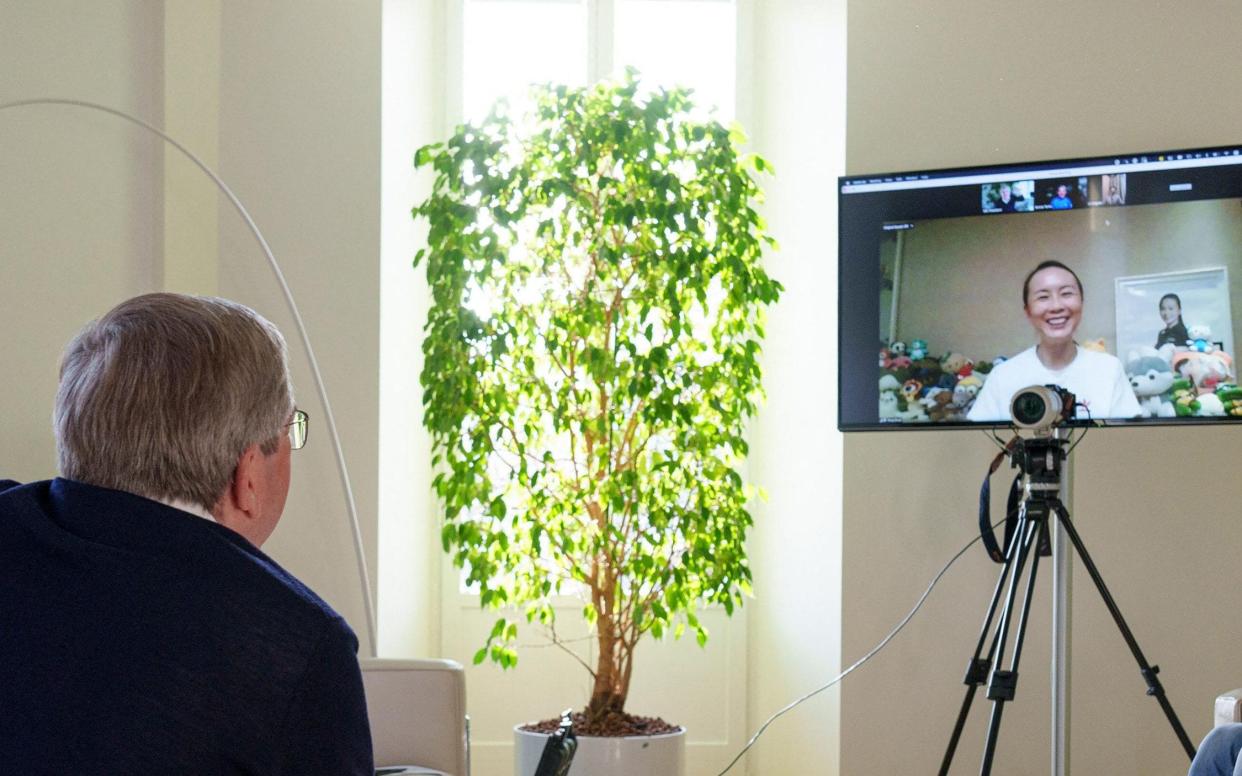China accuses critics of trying to 'maliciously hype up' Peng Shuai saga

China has branded mounting fears over the safety of Peng Shuai “maliciously hyped up”, accusing its critics of trying to politicise the saga.
The country’s foreign ministry cited Peng’s recent video call with Thomas Bach, the president of the International Olympic Committee, as proof she was alive and well amid a major diplomatic row over its response to the tennis star’s claims she was sexually assaulted by its former vice premier.
Ex-Wimbledon doubles champion Peng disappeared from the public eye for almost three weeks after posting a 1,600-word statement on Chinese social media platform Weibo in which she claimed Zhang Gaoli had “forced” her to have sexual relations with him.
In its most direct response to the issue yet, China’s foreign ministry said on Tuesday it was “not a diplomatic matter”.
“I believe you have all seen that she recently attended some public events and had a video call [with Bach],” spokesman Zhao Lijian told reporters.
“I think some people should stop deliberately and maliciously hyping up, let alone politicise this issue.”
The host nation for next year’s Winter Olympics spoke out after Human Rights Watch (HRW) accused the IOC of being a puppet of the state following Bach’s 30-minute video call with three-time Olympian Peng, in which no mention was made of her allegations against Zhang.
“The IOC has vaulted itself from silence about Beijing’s abysmal human rights record to active collaboration with Chinese authorities in undermining freedom of speech and disregarding alleged sexual assault,” said Yaqiu Wang, HRW’s senior China researcher, on Monday night.
“The IOC appears to prize its relationship with a major human rights violator over the rights and safety of Olympic athletes.”
HRW also accused the Chinese authorities of continuing to impose a media and internet blackout of discussions of Peng’s case, including by censoring her surname and mentions of the sport of tennis.
Lord Coe had earlier argued any form of Beijing Winter Olympics boycott over the case of Peng would be “a meaningless gesture”, while controversially suggesting the Nazi-run 1936 Berlin Games was proof that sport could be a “powerful driver of integration and change”.
Coe spoke out after Bach’s call with Peng was greeted with widespread scepticism amid rising pressure for sporting bodies and governments to ditch their “quiet diplomacy” methods and not send senior figures to the Beijing Games, which start in little more than two months.

 Yahoo News
Yahoo News 
